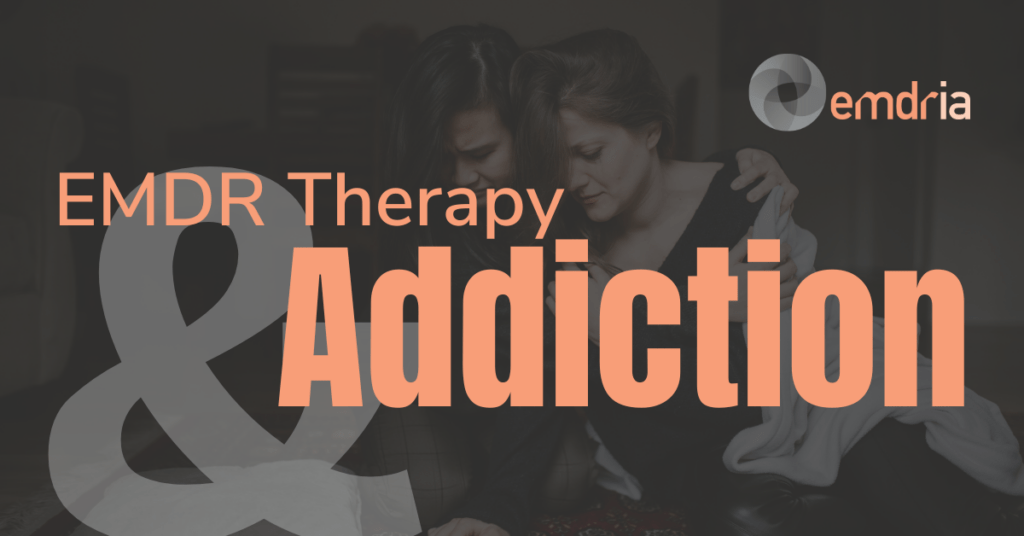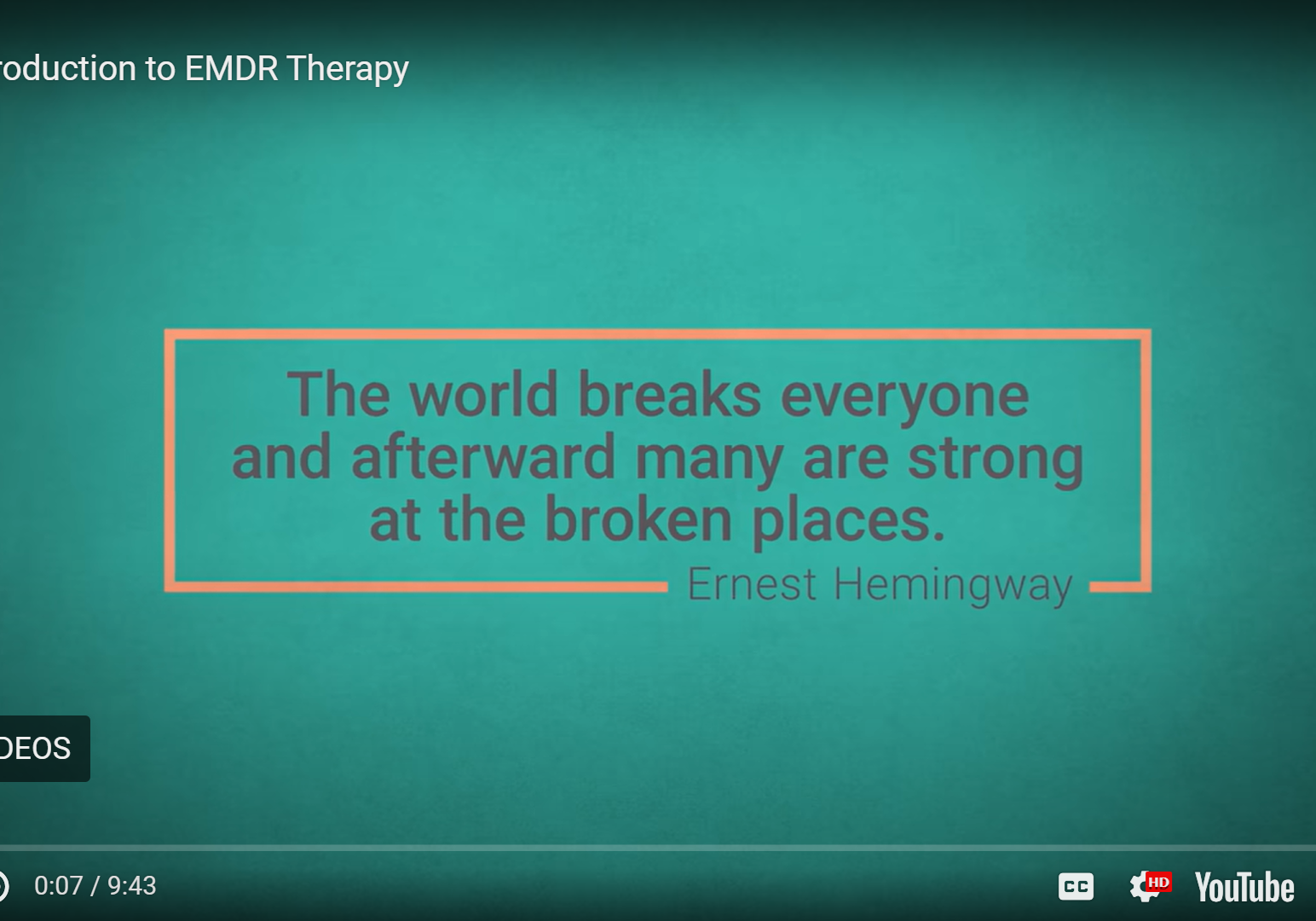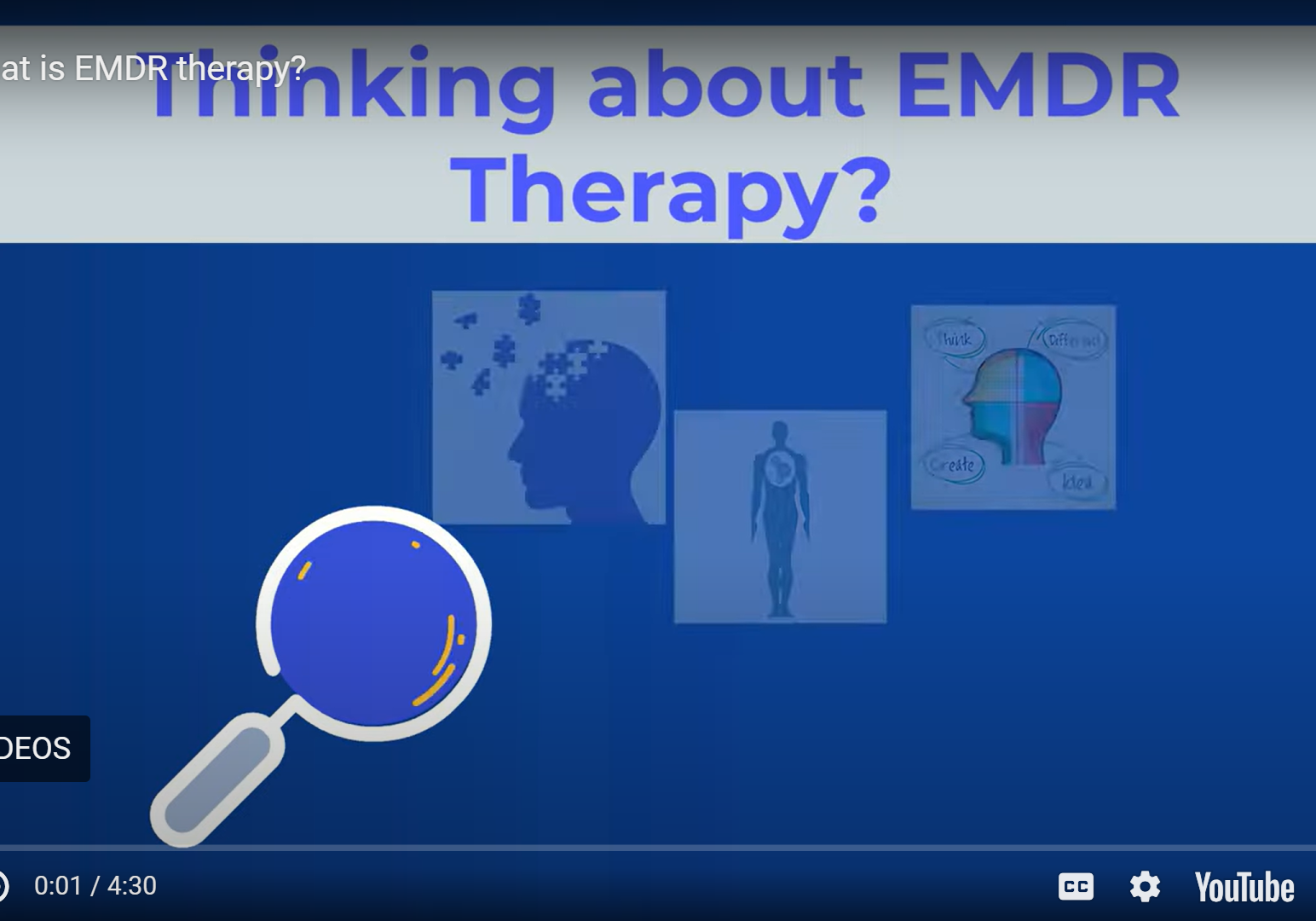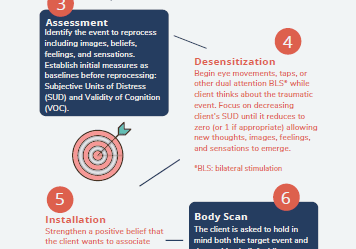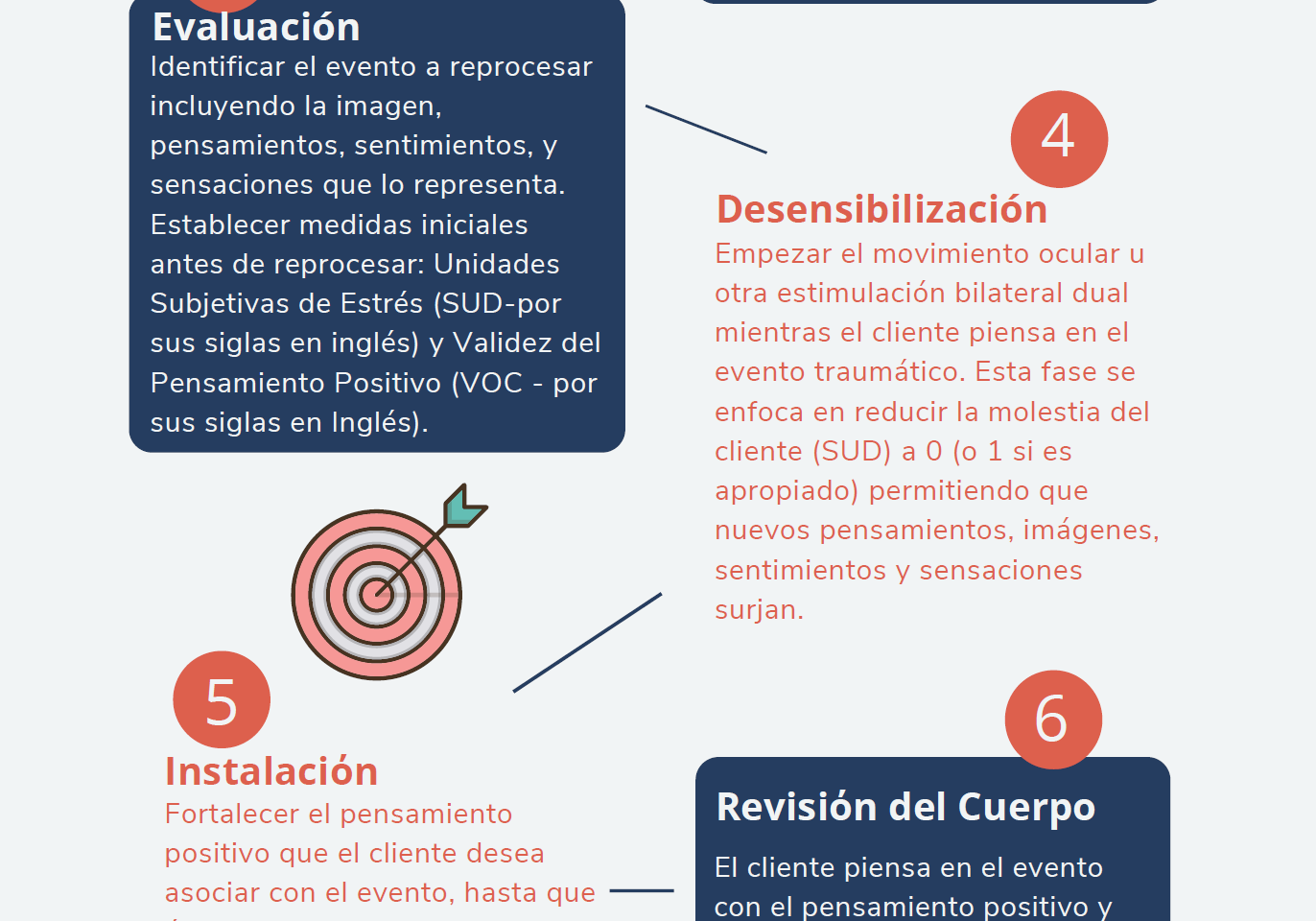Can EMDR therapy help with addiction?
Yes! Learn how you can experience relief with EMDR therapy.
What is addiction?
There are multiple viewpoints on how to describe this problem, including whether to use the word “addiction,” or “substance use disorder.” Some emphasize the neurological changes to the brain caused by substances and hence adhere to a “disease” model, whereas others find this definition too limiting.
While these varied viewpoints regarding what addiction is about are important, one crucial piece that is often missing is the sufferer’s experience of unresolved trauma (Marich and Dansiger, 2022). People often begin to use substances or engage in a behavior that helps to cope with the pain that underlies the experience of trauma. When substances or behaviors begin to interfere with relationships and responsibilities, then these coping skills have likely shifted to compulsive behavior or addiction.
In other words, addiction involves an ongoing engagement with a behavior that in the short-term results in a positive feeling, but in the long term has negative or destructive consequences (Knipe, 2019).
Addictions can also develop when positive feelings become rigidly linked to specific behaviors. This linkage is called a “feeling state,” and positive feelings such as excitement, satisfaction, and power (among others) occur in connection with activities surrounding the use of substances (Miller, 2012). Some people struggling with addiction will report positive feelings regarding not only the substance use, but activities surrounding the substance. Some examples of activities include opening a bottle of wine and smelling it, the act of shooting up drugs, or using cash to buy drugs, just to name a few. Some people report a feeling of belonging when they smoke with friends. As a result, they continue their behavior to try to reach again that same sense of belonging.
Addiction is complex because it involves brain chemistry, genetics, life experiences, and environmental factors. Addiction is chronic and sufferers are prone to relapse because functional changes occur in brain circuits involving stress, reward, and self-control. People suffering from addiction crave and seek out substances despite the risk of damaging their relationships, health, finances, and career.

How can addiction affect your life?
Addiction can impact multiple areas of life. These effects are not always explicit, or clearly linked to the problem behavior or substance. It is also easy for people suffering from an addiction to be in a state of denial where they do not acknowledge problems or their source. Problems such as disrupted sleep, lack of motivation, increased irritability, and decline in school/work performance and attendance can easily all be attributed to some other issue than substance use or a behavioral problem.
When substance abuse disorders are left untreated, serious physical problems can result, including organ failure, circulation issues, sleep disorders, and chronic fatigue. Substance use disorder also affects the central nervous system, which can result in mental health problems such as memory loss, cognitive problems, loss of focus and concentration, poor decision making, cravings, anxiety, and depression. These problems outlined can lead to a negative impact on a person’s social life, financial stability, and family/intimate relationships. Unaddressed addiction can increase vulnerability to additional traumatization, making the need for "relief" more intense and relapse more likely.

How can Eye Movement Desensitization and Reprocessing (EMDR) therapy help you overcome addiction?
For many people, addiction and mental health disorders are intertwined, and one can cause or worsen the other, so a comprehensive treatment plan addresses both domains of problems.
EMDR therapy for addiction is an eight-phase psychotherapy that can be utilized in a few different ways. Some EMDR therapists may use a trauma focused (TF-EMDR) approach, whereas others may use an addiction focus (AF-EMDR). Also, some therapists may integrate additional approaches such as Internal Family Systems (IFS).
AF-EMDR therapy protocols can help reduce the attractiveness of addictive behavior via special protocols designed to reduce cravings, disrupt the positive feelings linked with substance use or behavior, reduce the impact of change blocking fears, and increase the stability of treatment effects (Popky, 2010).
TF-EMDR reduces the impact of the past by resolving unprocessed trauma memories. EMDR therapy in general helps to desensitize triggers and reinforce positive resources connected to success. It helps you tie current symptoms to negative beliefs, sensations, or feelings and unresolved stressful events that have fueled and strengthened them. TF-EMDR therapy involves some important preparatory steps before engaging in reprocessing of a painful memory. There is much research that supports the treatment of PTSD and depression using EMDR therapy, and a growing body of research supporting its use for addiction.
As mentioned above, some EMDR therapists utilize additional interventions such as Internal Family Systems or “parts work” (as it is often called) to support client’s recovery and reprocess. Sometimes learning that only a part (or parts) of oneself is attached to addictive behaviors gives that person confidence and self-agency to get help. Additionally, such a realization can help de-stigmatize the behaviors (Brown, S. personal communication, 2023). Clients can talk with their EMDR therapist to provide more information about this approach (if applicable).
An EMDR therapist will determine whether AF-EMDR, TF-EMDR, or IFS is best suited for your needs as a client. EMDR therapists will be mindful of how your culture and personal context impact you and your experience of addiction and mental health issues. They will build a strong working relationship with you and help you develop tools for coping with how you are feeling currently. Your therapist will assess your readiness for EMDR therapy reprocessing and move at a pace that works for you.
EMDR therapy takes a number of sessions, and your therapist will help you to return to a calm place at the end of each session and talk to you about how to “close” down the work until your next session.
The timing for using EMDR reprocessing varies from one client to the next. EMDR therapists use their clinical judgment and a strong therapeutic alliance to develop a treatment. Also, EMDR therapists need to assess and re-evaluate the approach as the clients’ needs might change with time.

What are clients saying about EMDR therapy for addiction?
“After a few [EMDR trauma protocol] sessions, I noticed a huge difference. It was like a door opened in a dark room I had locked myself into. My life has changed completely. It has been a lot of hard work, but I have...continuous sobriety.”
—Client treated for PTSD and Alcohol Dependence1
“Drinking helped me to not constantly think about the worst thing that happened to me when I was 14. But I have a son now and I knew I could not go on as I was. Processing my trauma was tough, but EMDR took care of the problem in a way that drinking never did or could. Now I am free to be an available and healthy father to my son.”
—Ryan, age 40
“Using substances and cigarettes helped me to fit in with my colleagues and friends. I wanted to feel that I belong even if I do not use substances. Through EMDR, I realized that I could have that feeling of belonging without the substances.”
—Mary, age 65

What questions can you ask your EMDR therapist about using EMDR for addiction?
- What can I expect from EMDR?
- How does EMDR help to recover from addiction?
- What is your training and experience with EMDR and addiction?
- Can EMDR cause me to relapse? What will we do if I start to feel overwhelmed?

What's the next step?
Find an EMDR Therapist in Your Area
The EMDRIA™ Find an EMDR Therapist® directory is an up-to-date resource to find EMDRIA™ members providing EMDR therapy in your area. The directory includes searches by location, name, and other criteria.
Want to learn more about EMDR therapy?
Introduction to EMDR Therapy
In this video, learn what it’s like to experience EMDR therapy and how the therapy is widely recognized by trusted organizations.
Thinking about EMDR Therapy?
What does EMDR therapy look like? This short video for clients explains the 8 Phases of EMDR Therapy and what they might experience in EMDR therapy sessions.
8 Phases of EMDR Therapy Infographic
Discover the 8 phases of EMDR Therapy to treat traumatic events. From history and treatment plan to reevaluation and more.
Infografía de las 8 fases de la terapia EMDR
Descubre las 8 fases de la Terapia EMDR para tratar eventos traumáticos. Desde la historia y plan de tratamiento hasta la reevaluación y mas.

Citations
1Abel, N. J., & O'Brien, J. M. (2010). EMDR treatment of comorbid PTSD and alcohol dependence: A case example. Journal of EMDR Practice and Research, 4(2). https://doi.org/10.1891/1933-3196.4.2.50
Brown, S. H.; Gilman, S. G.; Goodman, E. G.; Adler-Tapia, R. & Freng, S. (2015). Integrated trauma treatment in drug court: combining EMDR therapy and seeking safety. Journal of EMDR Practice and Research, 9(3). https://doi.org/10.1891/1933-3196.9.3.123
Carletto S.; Oliva, F.; Barnato, M.; Antonelli, T.; Cardia, A.; Mazzaferro, P.; Raho, C.; Ostacoli, L.; Fernandez, I. & Pagani, M. (2018). EMDR as add-on treatment for psychiatric and traumatic symptoms in patients with substance use disorder. Frontier in Psychology,8:2333. http://doi.org/10.3389/fpsyg.2017.02333
Knipe, J. (2019). EMDR Toolbox Theory and Treatment of Complex PTSD and Dissociation. (Second Ed). New York, NY: Springer Publishing.
Marich, J., & Dansiger, S. (2021). Healing addiction with EMDR therapy: A trauma-focused guide. Springer Publishing Company.
Marich, J. (2010). Eye movement desensitization and reprocessing in addiction continuing care: A phenomenological study of women in recovery. Psychology of Addictive Behaviors, 24(3), 498-507. https://doi.org/10.1037/a0018574
Marich, J. (2009). EMDR in the addiction continuing care process: Case study of a cross-addicted female’s treatment and recovery experience. Journal of EMDR Practice and Research, 3(2). 98-106. https://doi.org/10.1891/1933-3196.3.2.98
Miller, R. (2012). Treatment of behavioral addictions utilizing the feeling-state addiction protocol: a multiple baseline study. Journal of EMDR Practice and Research, 6(4), 159-169. http://doi.org/10.1891/1933-3196.6.4.159
Popky, A. J. (2010). The desenstization of triggers and urge reprocessing (DeTUR) protocol. In Luber (Ed.), Eye movement desensitization and reprocessing (EMDR) scripted protocols: Special populations (pp. 489–511). New York, NY: Springer Publishing Company.
Weibren, M.; Hornsveld, H. K. (2017). EMDR interventions in addiction. Journal of EMDR Practice and Research, 11(1). http://doi.org/10.1891/1933-3196.11.1.3
Wiebren, M.; de Kruijk, C.; Hornsveld, H.; de Weert-van Oene, G.; Becker, E.; Dejong, C. (2019). Treatment of alcohol use disorder with adjunctive addiction-focused EMDR: a feasibility study. Journal of EMDR Practice and Research, 13(3). http://doi.org/10.1891/1933-3196.13.3.187
More Resources
Find more addiction resources in the EMDRIA™ Library.
Special thanks to our members Susan Brown, Dr. Jamie Marich, Julie Miller, and Hope Payson for their invaluable feedback regarding this page.

